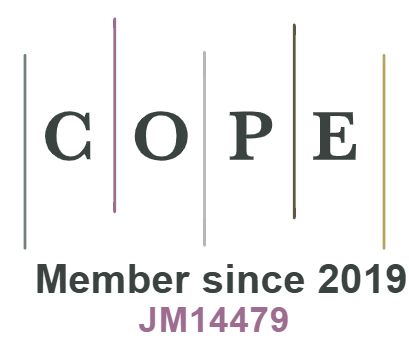Praca w doświadczeniu biograficznym trzech generacji kobiet z łódzkich enklaw biedy
DOI:
https://doi.org/10.18778/0208-600X.56.05Słowa kluczowe:
praca, bieda kobiet, transformacja systemowa, wykluczenie społeczneAbstrakt
Łódź nazywana jest miastem pracujących kobiet. Przez ponad dwieście lat rozwój miasta, losy życiowe i sytuacja zawodowa jej mieszkańców były związane z funkcjonowaniem zakładów przemysłu tekstylnego, włókienniczego, odzieżowego, które oferowały zatrudnienie przede wszystkim kobietom1. Artykuł traktuje o znaczeniu pracy zarobkowej w generowaniu sytuacji życiowej trzech generacji łódzkich kobiet. Wskazuje znaczącą rolę, jaką w przełamywaniu lub ześlizgiwaniu się w biedę mieszkanek przemysłowej Łodzi odegrały – determinowane przez wydarzenia historyczne (II wojna światowa), a przede wszystkim procesy społeczno-ekonomiczne (dekoniunktura gospodarcza lat międzywojennych, powojenna transformacja ustrojowa i transformacja systemowa lat 90.) – zmiany zachodzące na łódzkim rynku pracy. W doświadczeniu starszej generacji mieszkanek Łodzi powojenna transformacja ustrojowa, w głównej mierze procesy intensywnej industrializacji i nacjonalizacji przemysłu, gwarantując szeroki dostęp do pracy zawodowej, otworzyły wykorzystaną przez wiele z nich szansę wyjścia z biedy, doświadczanej w okresie międzywojennym, w rodzinach pochodzenia. Dla pokolenia ich córek, które wkroczyły w życie dorosłe na przełomie lat 70. i 80., podejmując podobnie jak matki bez większych problemów pracę zawodową, stanowi ona szansę na utrzymanie względnie stabilnej sytuacji materialnej w kolejnym pokoleniu. Sytuację życiową kobiet średniej generacji oraz kolejnej, młodszej, w znaczący sposób zmienia zapoczątkowany w latach 90. proces restrukturyzacji łódzkiego przemysłu włókienniczego. W efekcie tych zmian kobiety średniej i młodszej generacji tracą możliwość utrzymania pracy, młodszej – podjęcia pracy zawodowej w ogóle, obie generacje zasilają w ten sposób kategorię osób zbędnych na rynku pracy.
Bibliografia
Beck U. (2002), Społeczeństwo ryzyka. W drodze do innej rzeczywistości, Wydawnictwo Naukowe Scholar, Warszawa.
Google Scholar
Golczyńska-Grondas A. (2004), Mężczyźni z enklaw biedy. Rekonstrukcja pełnionych ról społecznych, Wydawnictwo ABSOLWENT, Łódź.
Google Scholar
Jankowski B., Warzywoda-Kruszyńska W. (2010), Mieszkańcy łódzkich enklaw biedy 10 lat później, Wydawnictwo Biblioteka, Łódź.
Google Scholar
Kwiatkowski E. (2007), Zróżnicowanie regionalne bezrobocia i jego uwarunkowania w Polsce w latach 1991–2005, [w:] W. Nowak-Sapota, R. Knapa (red.), Dylematy bezrobocia w ujęciu regionalnym, „Zeszyty Naukowe Szkoły Wyższej im. Pawła Włodkowica w Płocku”, nr 30, s. 9–27.
Google Scholar
Marczyńska-Witczak E. (1996), Zmiany struktury gospodarczej Łodzi, [w:] W. Michalski (red.), Transformacja społeczno-gospodarcza Łodzi na tle regionu, Polskie Towarzystwo Geograficzne, Łódź, s. 48–57.
Google Scholar
Nowakowska B. (1996), Rynek pracy w Łodzi, [w:] W. Michalski (red.), Transformacja społeczno-gospodarcza Łodzi na tle regionu, Polskie Towarzystwo Geograficzne, Łódź, s. 9–14.
Google Scholar
Poleszczuk J. (1991), Praca w systemie gospodarki planowej, [w:] M. Marody (red.), Co nam zostało z tych lat… Społeczeństwo polskie u progu zmiany systemowej, Wydawnictwo Aneks, Londyn.
Google Scholar
Potoczna M., Warzywoda-Kruszyńska W. (2009), Kobiety z łódzkich enklaw biedy. Bieda w cyklu życia i międzypokoleniowym przekazie, Wydawnictwo Uniwersytetu Łódzkiego, Łódź.
Google Scholar
Rynek pracy w Łodzi. Diagnoza (2003), Urząd Miasta Łodzi, Wydział Strategii i Analiz, Łódź.
Google Scholar
Titkow A. (1995), Kobiety pod presją? Proces kształtowania się tożsamości, [w:] A. Kwak, H. Domański (red.), Co to znaczy być kobietą w Polsce, IFiS PAN, Warszawa, s. 9–39.
Google Scholar
Walczak R. (2000), Obraz siebie u kobiet długotrwale bezrobotnych, Katolicki Uniwersytet Lubelski, Lublin.
Google Scholar
Warzywoda-Kruszyńska W., Grotowska-Leder J. (1996), Wielkomiejska bieda w okresie transformacji, Wydawnictwo OMEGA-PRAKSIS, Pabianice.
Google Scholar
Warzywoda-Kruszyńska W., Jankowski B. (2013), Ciągłość i zmiana w łódzkich enklawach biedy, Wydawnictwo Uniwersytetu Łódzkiego, Łódź.
Google Scholar
Wejnert B. (2001), Wpływ przeobrażeń politycznych na zmiany ról społecznych kobiet. Studium porównawcze okresu socjalizmu i początków demokracji, [w:] A. Wachowiak (red.), Jak żyć. Wybrane problemy jakości życia, Wydawnictwo Fundacji „Humaniora”, Poznań.
Google Scholar
Pobrania
Opublikowane
Jak cytować
Numer
Dział
Licencja
Prawa autorskie (c) 2016 © Copyright by Małgorzata Potoczna, Łódź 2016; © Copyright for this edition by Uniwersytet Łódzki, Łódź 2016

Utwór dostępny jest na licencji Creative Commons Uznanie autorstwa – Użycie niekomercyjne – Bez utworów zależnych 4.0 Międzynarodowe.










